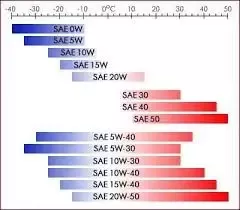In the world of internal combustion engines, the crankshaft plays a vital role. But does it really affect the power output of the engine? Let’s delve into this intriguing question and explore the impact of the crankshaft on engine performance.
Understanding the Crankshaft
The crankshaft is like the backbone of the engine, responsible for converting linear motion into rotational motion. Its design and quality are crucial for the engine’s proper functioning and longevity.
Effects of Crankshaft on Power
A well-designed crankshaft can significantly impact the engine’s power output. Here are some ways in which the crankshaft affects power:
- Fatigue Strength: A high-quality crankshaft with excellent fatigue strength can handle the stress of high-performance engines, resulting in improved power delivery.
- Wear Resistance: A crankshaft with superior wear resistance will maintain its integrity over time, ensuring consistent power output.
Symptoms of a Bad Crankshaft
It’s important to recognize the signs of a failing crankshaft. Common symptoms include:
- Knocking or rattling noise from the engine
- Loss of power output
- Erratic or rough engine idle
Benefits of a Better Crankshaft
Investing in a high-quality crankshaft, such as a forged one, can offer several benefits:
- Increased Strength: Forged crankshafts are stronger than cast iron ones, allowing for greater horsepower and torque.
- Enhanced Performance: A well-crafted crankshaft contributes to improved engine performance and longevity.
Implications of Crankshaft Failure
When the crankshaft malfunctions, it can lead to various issues, such as engine misfires and oil leaks:
- Engine Misfires: A damaged crankshaft can disrupt the engine’s firing sequence, resulting in misfires and reduced power.
- Oil Leaks: Faulty crankshafts can cause oil leaks near the front of the vehicle, indicating a need for immediate attention.

Credit: www.researchgate.net

Credit: m.youtube.com
Frequently Asked Questions Of Does Crankshaft Affect Power? : Maximize Engine Performance
What Are The Signs Of A Bad Crankshaft?
A bad crankshaft can be identified by the following signs: knocking or rattling noise from the engine, loss of power, erratic or rough engine idle. A damaged crankshaft affects the engine’s power output and can lead to misfires and oil leaks.
It is important to have a strong and properly functioning crankshaft for optimal engine performance.
What Does A Crankshaft Affect?
The crankshaft affects the proper operation of the engine and converts linear motion to rotational motion.
What Happens If Your Crankshaft Goes Out?
When your crankshaft goes out, it can cause knocking noise, loss of power, and rough engine idle. If the crankshaft position sensor fails, the car won’t start. A stronger crankshaft can provide greater horsepower and torque for your engine.
What Does A Better Crankshaft Do?
A better crankshaft can enhance engine performance by providing greater horsepower and torque. A forged crankshaft, in particular, is stronger than a cast iron crankshaft and can handle higher levels of torque without breaking. This results in improved power output and better overall engine performance.
Conclusion
In conclusion, the crankshaft plays a crucial role in determining an engine’s power output and overall performance. Investing in a high-quality crankshaft can lead to enhanced power delivery, increased torque, and better engine reliability.
Read More:


